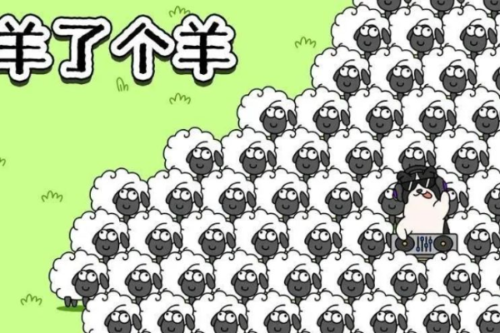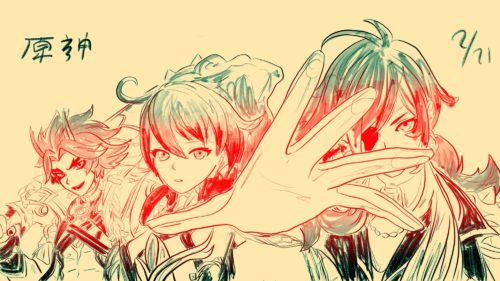Chinese youth find pandemic relief in the form of role-playing
The role-playing game "script murder," with its elaborate plot lines and fancy costumes, has taken China by storm. What's driving the popularity of this social deduction game?

Murderers disguise themselves as friends, members teleport back in time, and even laws of physics are transcended on a whim. All from the comfort of home.
The role-playing murder mystery game jùběnshā 剧本杀 (literally, “script murder”) has been popular in China for years, but it was only during the pandemic, as people were cooped up inside, that it really took off. It is now the favored pastime of many Chinese youth.
The game is loosely based off Mafia — a social deduction game in which players, each with their secret identities, look for the murderers among them — which originated in Russia in 1987. Script murder is Mafia’s glitzier, over-the-top cousin, which can be played in specialized venues decked out like escape rooms. Players are given complex backstories, costumes, and secret objectives, all while a host guides members along their chosen plot line.
Script murder first latched on in China in 2016, when youths, disaffected by the doldrums of day-to-day life, became fascinated by the creative and playful worlds that role-playing offered. Entrepreneurs took note of their popularity — and similar games like Werewolf (狼人杀 lángrénshā) — and created numerous knock-offs and variations.
Script murder venues are now found near almost every subway stop in major Chinese cities. According to a report by Meituan, there were approximately 30,000 venues last November, and a recent CCTV report valued the industry at around $1.5 billion (10 billion yuan).
In Beijing alone, there are more than 500 script murder stores. A new store opens every two to three days, according to Diāo Dōngyǔ 刁东宇, a script murder store owner, citing a source from inside the shopping platform Dianping. Diao also says there are at least a thousand studios in China which produce murder scripts.
In the past year, the alternative worlds of script murder offered many Chinese an escape. The popularity of Who’s the Murderer — a reality TV show featuring Chinese celebrities trying their hand at the game — swelled during the pandemic, driving traffic to script murder’s online versions. Woshimi, one of the top apps, gained 300,000 users in two months, which totaled 8 million at the beginning of 2020. The sudden spike crashed their servers multiple times.
Niú Ēnhào 牛恩昊, a regular player in Beijing, told me that one of the most appealing aspects of script murder is the chance to socialize. He started playing the game while quarantined at the beginning of 2020 and made friends with strangers from all over China. Some of these friendships have extended offline. He now plays occasionally, bonding with old friends and meeting new ones.
“Even if you’re total strangers, if you go through two or three games together, you’d basically know that you can get along pretty well,” Niu said. “When you finally meet up in real life it feels as though you’ve been friends for a long time. I never thought that I could make good friends this way.”
For Niu, script murder shattered his old conception of what constituted genuine socializing. Through online role playing, he told me, two strangers may pretend to behave as family members, friends, or lovers, and this kind of interaction can lead to more genuine emotions and conversation than chatting to random strangers at the bar.
Wáng Hè 王贺, an active script murder player, said what appeals to him the most is the sense of involvement in exhilarating storylines. The interactions with other players aren’t bad, either.
“A Woman by the Window” (窗边的女人 chuāng biān de nǚrén) — based on a true murder story in Nanjing University in 1996, which remains unsolved to this day — is one of Wang’s favorite script murder games. He enjoys solving the mystery piece by piece, discovering the little secrets everybody is hiding.
He used to spend his spare time going to karaoke bars and clubs with a fixed group of friends, but now, the script murder scene has sucked up all his time, and he plays four to five times a week. With new people and a new murder story each time, every game is a new experience for him.
For Sōng Zhéhèchuān 松哲鹤川, another script murder patron, love for the game stems from the sense of accomplishment achieved after solving one of the mysteries.
“I think my reasoning ability is slightly stronger than average, so I feel really good when I can untangle a mystery no one else can,” Song said. A good script murder game, with its variety of eccentric roles and relationships, offers a rare outlet to express emotions she otherwise wouldn’t be comfortable expressing in everyday life.
“It can be cathartic when I resonate with my character’s feelings, especially when family is involved,” Song said. “Because I don’t really express my emotions to my parents.”





